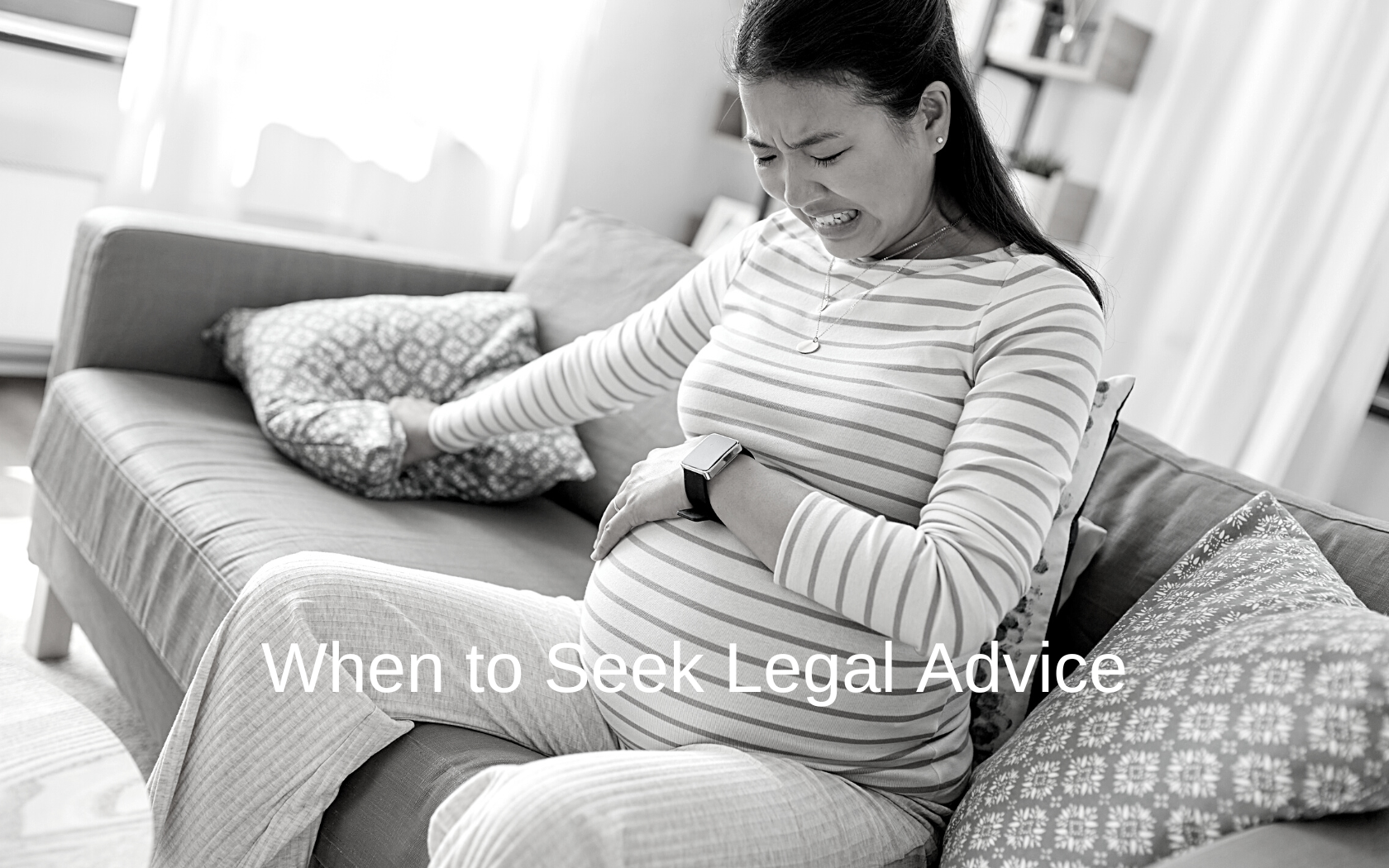There’s a running joke that a baby who takes too long to leave the womb is “getting their hair done”. But prolonged labor can have negative effects on a baby—and that’s no joke. While rare, some prolonged labor complications cause lifelong injuries.

What is Prolonged Labor?
Prolonged labor is when the process of childbirth takes longer than usual. Labor is considered prolonged when the active phase, which involves regular and strong contractions of the uterus that help to dilate the cervix, lasts longer than expected.
In general, active labor shouldn’t take longer than about 20 hours. But the exact moment doctors determine that labor is “slow to progress” depends on the exact situation.
Usually, “prolonged labor” applies to labor that lasts:
- 22-24 hours for first-time mothers.
- 16 hours for twins
- 14 hours for mothers who have given birth before
Causes of prolonged labor include:
- Baby is in an abnormal birth position, such as feet first
- Baby is very large
- Mother’s pelvis is of abnormal size or shape
- Weak uterine contractions
- Carrying multiple babies
- Mother has severe anxiety
- Shoulder dystocia (baby’s shoulder gets stuck behind mother’s pelvis)
- A slow-effacing cervix
- Taking certain pain medications
Prolonged Labor Effects on Baby
Going through what seems like endless labor can be emotionally and physically painful for a mother. It can also have ill effects on a baby.
Some potential effects of prolonged labor on a baby include:
- Fetal distress: Contractions that are too intense or prolonged can affect the baby’s heart rate. As a result, the baby’s oxygen supply may be compromised.
- Birth trauma: Injuries like bruising and swelling can occur when a baby has trouble passing through the birth canal.
- Infection: Longer labor may increase the risk of infection for the baby because they can be exposed to bacteria. This risk is higher if the amniotic sac has ruptured for an extended period.
- Low Apgar Scores: The Apgar score is a quick test that measures a newborn’s overall health. Doctors perform this test at one and five minutes after birth. if the baby experiences stress during delivery, they may have a lower score.
- Respiratory Distress: Babies born after prolonged labor may be at a higher risk of respiratory distress syndrome (RDS). This is a condition where the baby’s lungs are not fully developed, and they may have difficulty breathing.
- Meconium Aspiration: Meconium is the baby’s first stool. Prolonged labor increases the chance of the baby passing meconium while still in the uterus. If the baby inhales it, they may develop respiratory issues.
- Cephalohematoma: Prolonged pressure on the baby’s head can cause blood to accumulate between the baby’s skull and the periosteum (the membrane covering the bones). This is known as cephalohematoma. It can produce a raised bump on the baby’s head.

Most Common Prolonged Labor Complications
Most babies are born healthy, even after prolonged labor. But unexpected complications can arise, even when it seems like everything’s going well. So it’s important for healthcare providers to closely monitor both the mother and the baby during labor. That way they can address any emerging concerns right away to prevent complications from prolonged labor.
For the purposes of this article, we’re considering “complications” to be dangerous and/or lasting conditions that result from prolonged labor’s effects on a baby.
Some of the most common prolonged labor complications include:
- Cerebral palsy (can stem from lack of oxygen during prolonged labor)
- Brachial plexus injuries (sometimes caused by misuse of delivery tools)
- Meconium Aspiration Syndrome
- Birth asphyxia (lack of oxygen that may cause brain damage)
- Hypoxic-ischemic encephalopathy (HIE)
Preventing Prolonged Labor Complications
Doctors can help prevent prolonged labor complications by monitoring the baby and providing treatment as soon as it’s necessary. The decision to intervene is made based on the specific circumstances of each case.
Treatment methods for prolonged labor include:
- Changing the mother’s birthing position
- Pain management to help the mother relax, which may allow for more efficient contractions
- Using forceps or vacuum to extract the baby
- Giving medication to speed up contractions
- Cesarean section

When Doctors Mishandle Prolonged Labor
When prolonged labor’s effects on a baby lead to a permanent injury, a family can face enormous medical bills. If the injury is negligence-related, you may be able to obtain compensation to pay these expenses.
But obtaining this compensation can be like trying to deprive a hungry lion of its dinner. So, if you suspect foul play was involved in your child’s prolonged labor complications, your best bet is to call in the pros.
An experienced birth injury lawyer can help you pinpoint exactly how doctors mishandled prolonged labor, such as failing to monitor your baby or failing to order a C-section when it was necessary. They can give you the best possible chance at proving your case and obtaining compensation.




